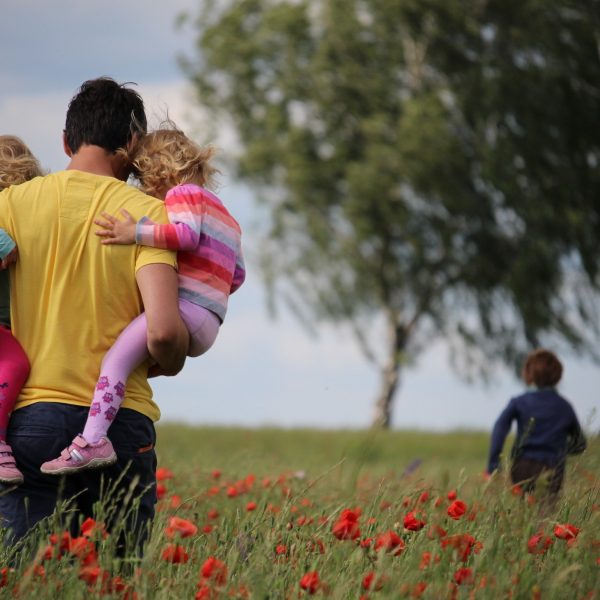National Child and Family Hubs Network established for wraparound care

A new network has been created to support and advocate for community hubs, a wraparound care service that many believe is the “best chance” at improving the overall health and well-being of families in Australia.
The National Child and Family Hubs Network is a multidisciplinary expert group that brings together research institutes, universities, community organisations, philanthropy and government departments.
With more than 460 already established across Australia, the hubs integrate health, education and social care needs for families from birth to 12 years. Children from socio-economic disadvantage stand to gain the most from the hubs, which have been informed by key research including recommendations from The Royal Commission into Victoria’s Mental Health System.
The hubs support families in the following ways:
- Comprehensive services: child and family hubs, supported by the network, function as one-stop shops where families can access a range of support services that enhance child development and family health and wellbeing, from pregnancy through to the early years of school.
- Reduced fragmentation: these hubs integrate a multitude of services under one roof, reducing fragmentation, providing non-stigmatizing and safe spaces, and building parent/caregiver capacity.
- Equity for all families: with over 60 per cent of existing hubs located in areas experiencing socio-economic disadvantage, the Network will work to ensure equitable access for children and families, particularly those facing life challenges.
- Addressing developmental vulnerabilities: with one in five children and four in ten Indigenous children developmentally vulnerable on one or more domains of the Australian Early Development Census, the network’s approach is designed to bridge these gaps. Hubs are especially designed to ensure they meet the needs of children in disadvantaged locations, Indigenous children, those in regional and remote areas, with language backgrounds other than English, and children with disabilities.
The hub network aims to combine each member’s current efforts in research, training, communication and advocacy work across the integrated ‘child and family hub’ model.These models span early childhood and primary school education, healthcare and Aboriginal and non-government organisation services.
“The network has been designed to leverage this interest and create an opportunity for collaborative learning and sustainable and effective practice,” Professor Harriet Hiscock said.
“Prior to the establishment of the network, there was no co-ordinated approach to implementing and evaluating integrated community-based hubs through evidence-based practice. It will provide opportunities for sharing and strengthening research and other resources, problem-solving, developing sustainable funding models and advocating for ongoing support.”
The hubs play a key role in preventing health, education, social and developmental problems as well as boosting social connections and well-being for families.
“Early, targeted support systems are associated with improved school readiness and parental knowledge and confidence and we hope these can be strengthened under this new network,” the Professor continued.
“The network will become a go-to trusted source of evidence of what works and what doesn’t and help fill some gaps in the current evidence.”
For MCRI Professor Sharon Goldfeld, who is the network chair, the hubs represent “the best chance we have, at this point in time, to drive excellent and equitable service delivery for children in Australia.”
“The network emerged out of the idea that there were opportunities to bring together the learnings from hubs all over Australia to ensure each can be of the greatest quality and sustained over time. What’s great about the hubs is that they bring all services together so families can go through a non-stigmatising front door to have their needs met.”
The National Child and Family Hubs Network is supported by the Centre for Community Child Health, The University of Sydney, Telethon Kids Institute, ARC Centre of Excellence for Children and Families Across the Life Course, National Children’s Commissioner, Australian Human Rights Commission, Beyond Blue, Children’s Health Queensland, University of New South Wales, Sydney Local Health District, Australian Research Alliance for Children and Youth, Social Ventures Australia, University of Tasmania, Karitane (NSW), Secretariat of National Aboriginal and Islander Child Care and OurPlace.
The network has been funded by the Ian Potter Foundation.
Popular

Policy
Practice
Provider
Quality
Research
Workforce
Beyond the headlines: celebrating educators and the power of positive relationships in early learning
2025-07-07 10:00:24
by Fiona Alston

Workforce
Policy
Quality
Practice
Provider
Research
ECEC must change now, our children can’t wait for another inquiry
2025-07-02 07:47:14
by Fiona Alston

Workforce
Quality
Practice
Provider
Research
Beyond the finish line: Championing child protection one marathon at a time
2025-07-08 09:15:32
by Fiona Alston













